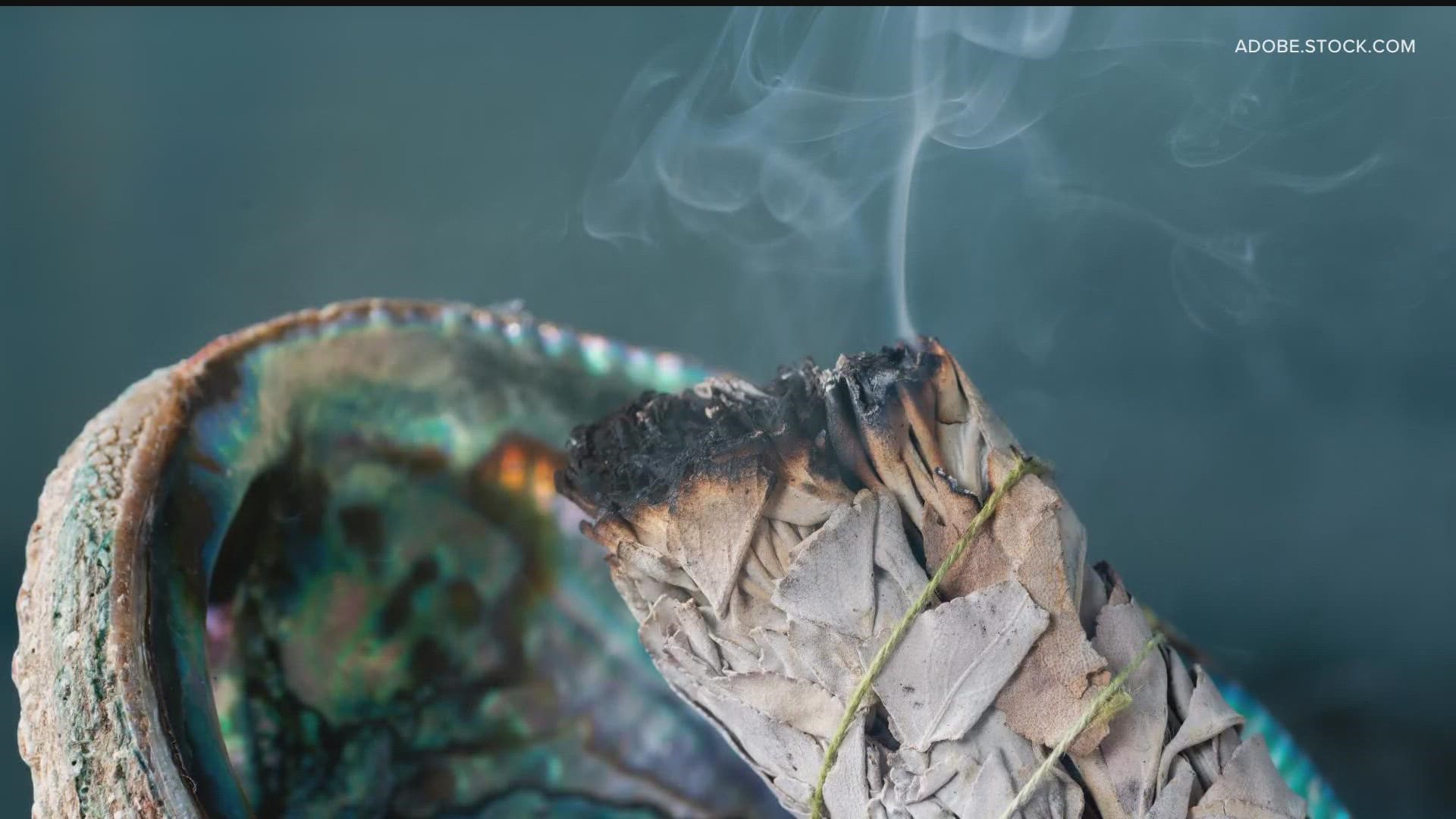ST PAUL, Minn. — Some time before the pandemic, Johnson High School students were the first to learn about and implement the indigenous practice of smudging within its school. When the students said they wanted to see the act of smudging be allowed throughout the district, St. Paul Public School officials heard them.
Now, they are steps away from approving a policy that would allow smudging in all of its schools.
"We use this to purify ourselves, we use this to cleanse the air," Tawny Hale said.
Hale is a manager at the Four Sisters Farmer's Market. She said smudging, or burning sage, sweetgrass or other herbs is something that indigenous folks may do prior to a ceremony or traditional dances.
"When we use our plant medicine it's really important to us. It's a sacred time that we can reconnect and give thanks to creator," Hale said.
But smudging can be a daily practice as well, according to St. Paul Schools Indian Education Program supervisor John Bobolink.
"Smudging is an every day cultural practice; some families, individuals start their day with a smudge," Bobolink said.
And SPPS is determined to let that be an option for the nearly 4 percent of indigenous students in its student body.
"It happens kind of as a given in most of schools that have a high number of American Indian children, because it is recognized as a way to help children to cope," Lisa Bellanger said. Bellanger, who is an American Indian specialist and lead teacher at SPPS, said smudging has many benefits.
"Smudging helps to give someone the strength that they need for medical or school testing, or school environment," she said. "I've used smudging when I've had disagreements between two students. They've sat down and smudged, and been able to clear the air."
Superintendent Joe Gothard says he's hoping this move will help more students feel seen, and at home.
"This in many ways is a series of different steps we've taken as a district, to not only represent but also to truly respect our American Indian partners and community members," Gothard said.
"I think it's about time that our school systems recognize that we're here on indigenous land and it's important for our young people to be who they are and to be able to practice their way of life," Hale said.
The policy is due for its third reading in July. If approved, it could be implemented as soon as the new school year.
Watch more local news:
Watch the latest local news from the Twin Cities in our YouTube playlist:

